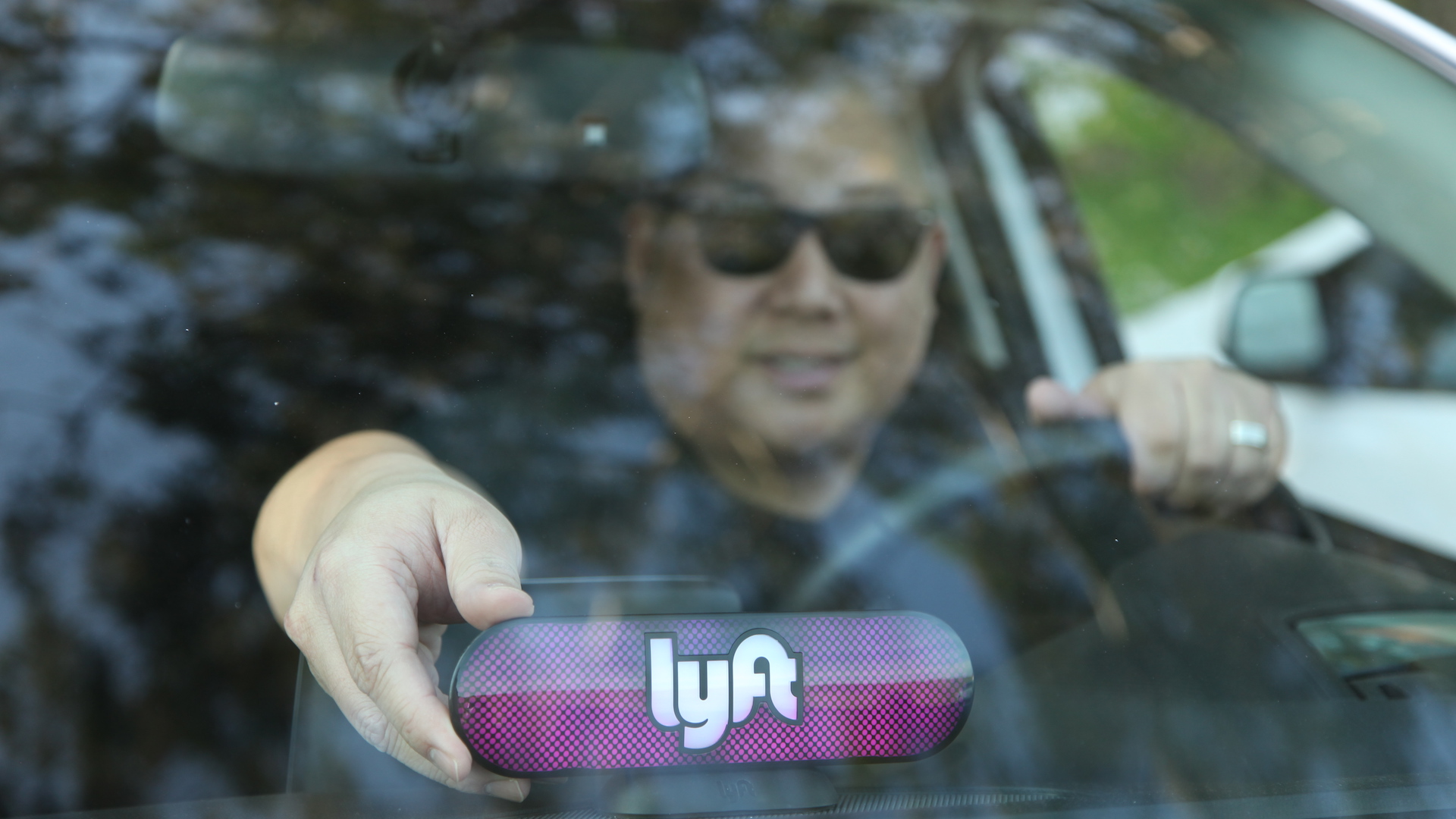

Lyft is officially the first ride-hailing company to launch an initial public offering (IPO). At the launch of the IPO Thursday, Lyft raised $2.34 billion with a company valuation of $24 billion, according to Reuters. Lyft stock began trading publicly Friday.
Lyft’s valuation reportedly exceeded investor expectations. It works out to $72 a share, compared to the $62 to $68 a share Lyft was targeting ahead of the IPO, reports Reuters. But it’s still a fraction of the $120 billion Uber is expected to be valued at when the larger ride-hailing company launches its own IPO, likely in April.
Lyft remains a much smaller company than Uber. While Lyft only operates in the United States and Canada, Uber has a truly global reach. But Lyft has gained ground recently by promoting itself as a morally superior alternative to Uber, which has faced numerous scandals. Lyft was also quicker to embrace bike-sharing and scooter-sharing as ways to expand its business. In 2018 it bought Motivate, the largest bike-sharing operator in the U.S.
Uber and Lyft epitomize the success of ride-hailing, but also its problems. Both companies have been accused of increasing traffic congestion in cities and taking advantage of drivers’ status as freelancers to pay low wages. While Uber and Lyft court Wall Street, they are also attracting more attention from regulators. In 2018, New York City instituted a one-year cap on new registrations for ride-hailing vehicles and passed legislation setting a minimum wage for drivers.
As Lyft launches its IPO, drivers in San Francisco and Los Angeles are protesting the company, claiming it doesn’t pay them a living wage. Both Lyft and Uber have argued that the majority of their drivers are only looking for supplemental income, justifying their status as freelancers and the current wages. But both companies have faced a slew of lawsuits arguing that drivers should be treated as employees, with higher wages and access to benefits.
In a move that could help address (or at least, distract from) current criticism, Lyft announced this week that it will give at least $50 million per year to cities to support transportation infrastructure, fight climate change, and provide free rides to those in need, including victims of natural disasters. The initiative starts in Los Angeles, where Lyft said it will give rides to people who provide services to the homeless.